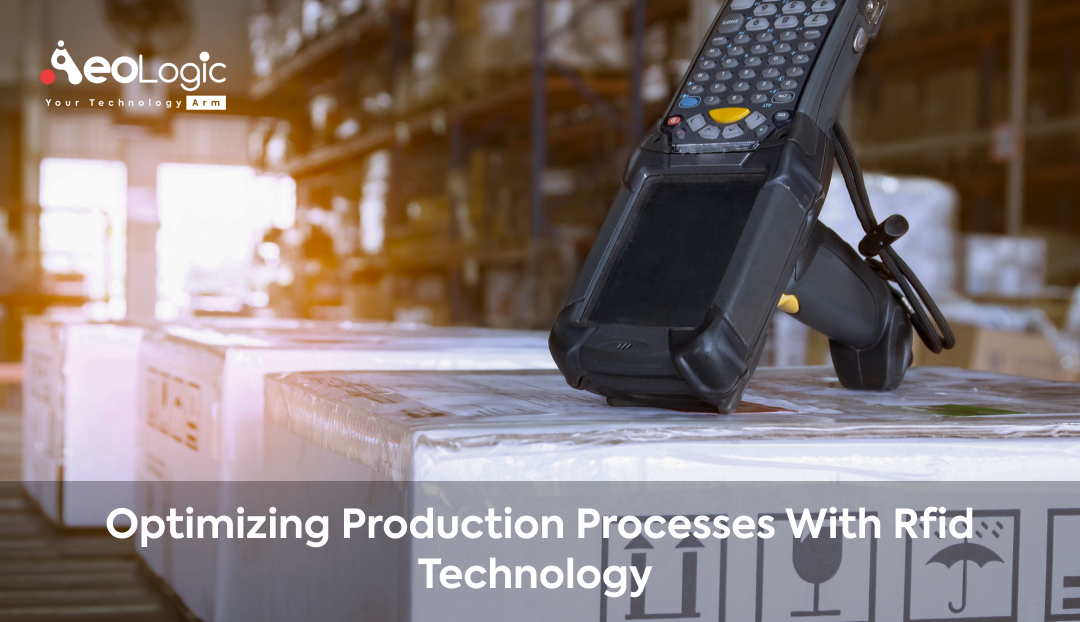The integration of cutting edge technologies isn’t just a trend but a necessity for assuring effectiveness, compliance, and eventually, the delivery of high quality healthcare products. Optimizing production process with RFID plays a vital part in orchestrating the complex dance of timelines, resources, and regulations. In recent times, the integration of RFID (Radio Frequency Identification) technology into product planning processes has surfaced as a game changer, promising to elevate perfection and streamline operations. (Klonopin)
Also read: Using RFID Technology To Track Returnable Items
Production Process With RFID Technology
RFID technology employs radio frequency signals to identify, track, and manage means in real time. Unlike traditional barcodes, RFID markers do not bear a direct line of sight for scanning, enabling flawless tracking of means throughout the product cycle. This technology has proven inestimable in different sectors, and its operation in medical manufacturing holds significant importance.
Boosting Productivity: How RFID Streamlines Production Processes Planning
Production Process With RFID in the Manufacturing Industry
RFID technology has revolutionized the manufacturing assiduity by enabling flawless tracking and monitoring of products and accoutrements throughout the product process. This composition aims to throw light on the role of RFID in manufacturing, pressing its benefits and exploring its different operations.
Enhanced Supply Operation
One of the primary advantages of production process with RFID in manufacturing lies in its potential to streamline supply operation. Traditional supply operation styles frequently calculate on manual data entry, which is time consuming and prone to errors. With RFID markers, still, manufacturers can automate the tracking of inventory, enabling real time visibility of stock situations and minimizing the threat of stockouts or overstocking. This not only improves effectiveness but also helps optimize the supply chain by assuring that accoutrements are readily available when demanded.
Bettered Quality Control
Quality control is pivotal in manufacturing to insure that products meet the asked norms. RFID technology plays a vital part in this aspect by enabling automated tracking and traceability of factors and finished goods. By attaching RFID markers to individual parts or products, manufacturers can fluently cover their movement throughout the product process, assuring that each item undergoes the necessary quality checks. This not only helps identify and amend any faults instantly, but also provides precious data for assaying and perfecting product processes.
Also read: RFID Solutions for Document Management and Tracking
Streamlined Product Flow
Effective product inflow is essential for maximizing productivity and reducing backups. RFID technology facilitates the smooth movement of accoutrements and products on the floor bottom. Thus, by furnishing real time information on their whereabouts. By exercising RFID readers and antennas strategically placed at different stages of the product process, manufacturers can track the progress of each item, identify any delays or diversions, and take corrective conduct instantly. This ensures that product schedules are stuck to, minimizing time out and optimizing overall productivity.
Enhanced Supply Chain Visibility
An effective supply chain is vital for manufacturers to meet client demands instantly. RFID technology offers comprehensive supply chain visibility. There by enabling accurate tracking and tracing of products from the point of origin to the end consumer. Thus, this visibility allows manufacturers to cover the movement of goods, anticipate implicit delays or dislocations. And make informed opinions to insure on time delivery. For instance, a manufacturer can use RFID markers to track the position. And condition of a payload. Thus, enabling them to reroute it in case of unanticipated delays or deflect it to a different distribution center to meet critical client conditions.
Cost Savings and Return on Investment
Implementing RFID technology in manufacturing may bear an outspoken investment, but the long term benefits and cost savings overweigh the original costs. By streamlining processes, reducing errors, and optimizing supply operation, RFID helps manufacturers save both time and money. For example, RFID can exclude the need for manual supply counts, which aren’t only time consuming but also prone to inaccuracies. Also, production process with RFID enables quick and more effective order fulfillment, reducing labor costs and perfecting client satisfaction.
RFID technology plays a vital part in streamlining manufacturing processes. There by enhancing supply operation, perfecting quality control, streamlining product inflow, and furnishing supply chain visibility. And generating cost savings. Its capability to automate and optimize different aspects of manufacturing makes it an necessary tool. For manufacturers seeking to boost productivity and stay competitive in today’s fast paced business terrain.
Also read: Efficient Document Management in Government with RFID Solutions
Conclusion
RFID technology offers significant advantages in enhancing quality control and traceability in manufacturing. Its real time tracking and monitoring capabilities, bettered traceability and recall operation, automated data collection and analysis. And integration with being systems make it a precious tool. For streamlining manufacturing processes. By using RFID technology, manufacturers can achieve advanced situations of product quality, functional effectiveness, and client satisfaction.







